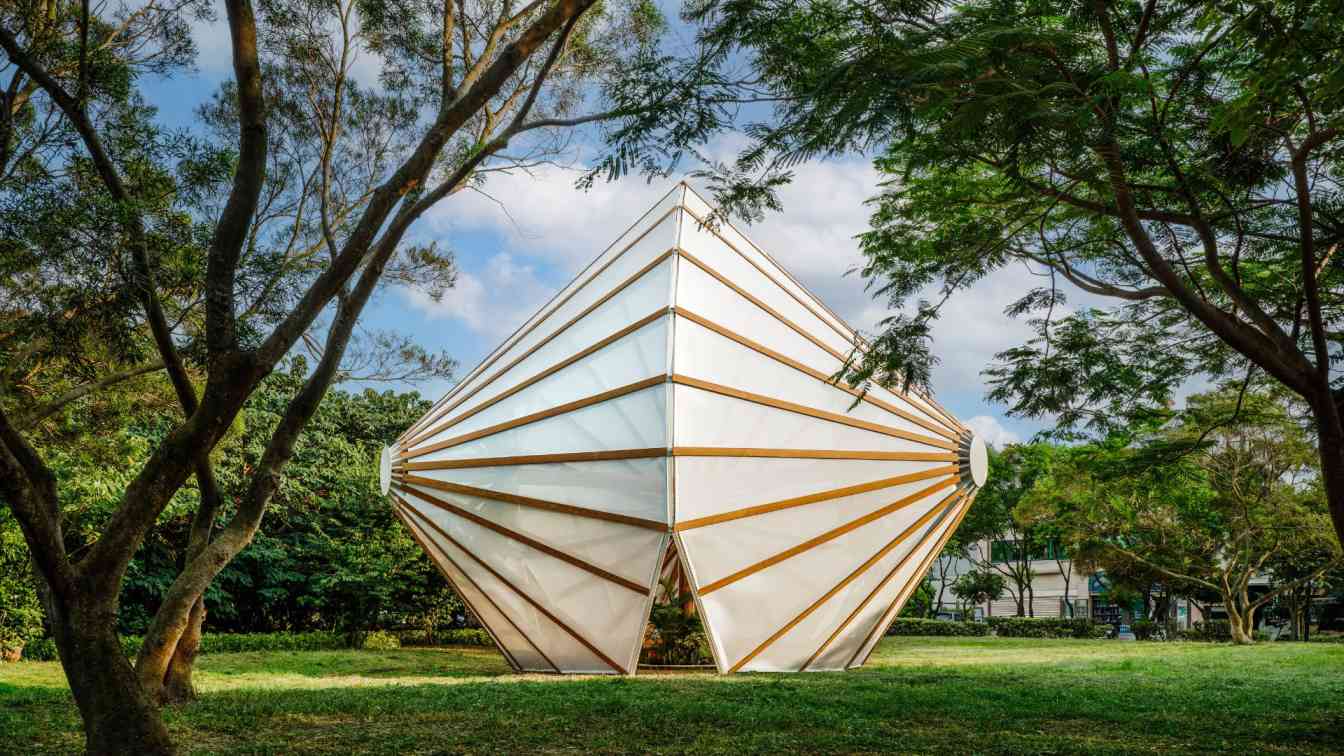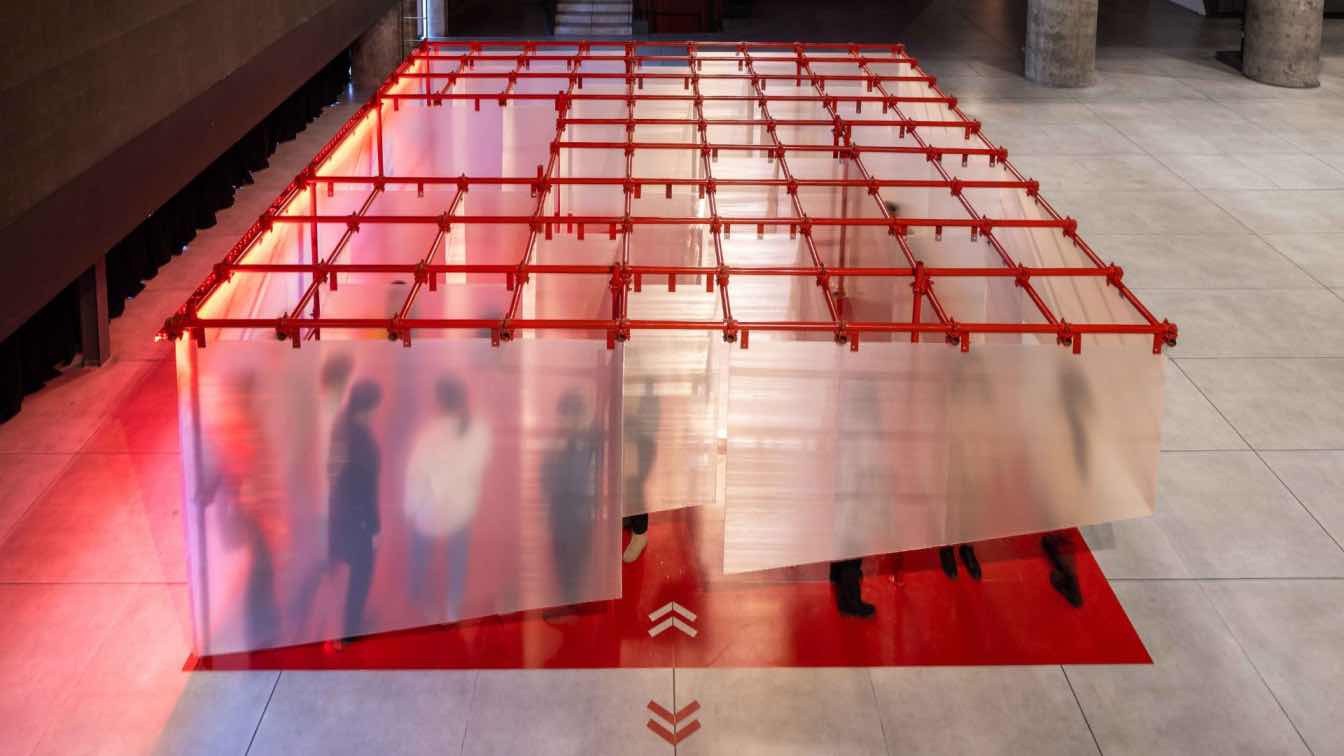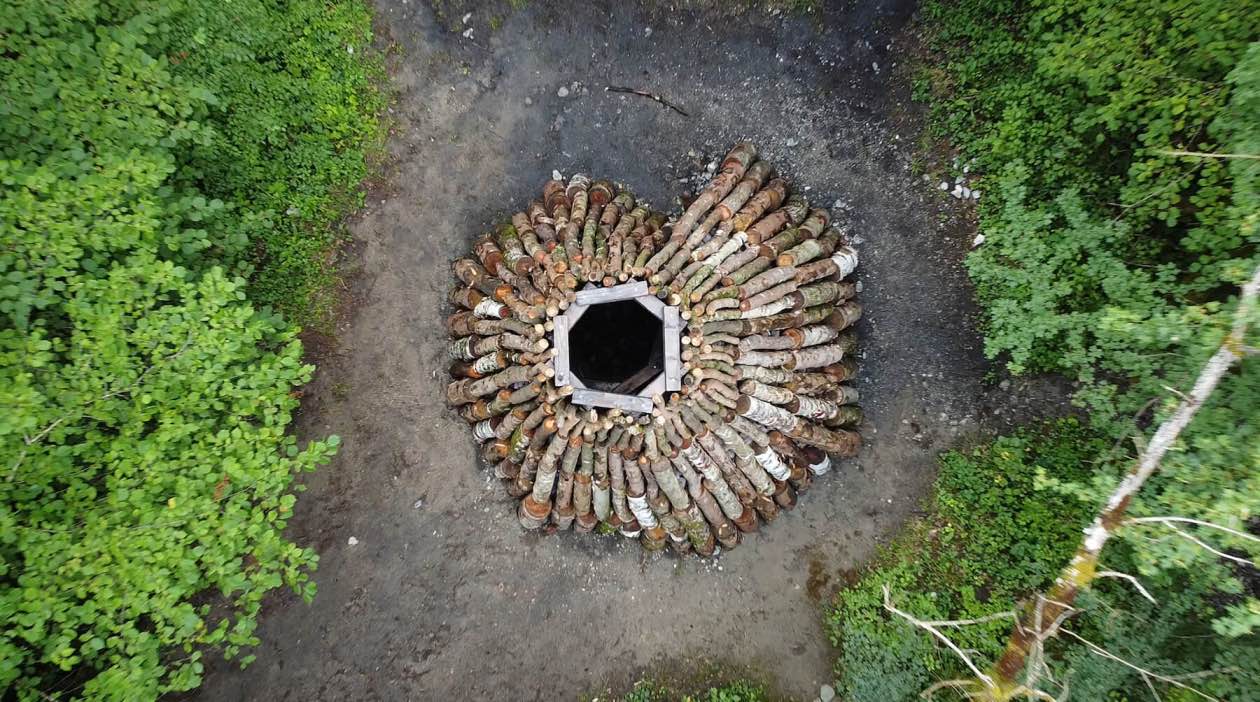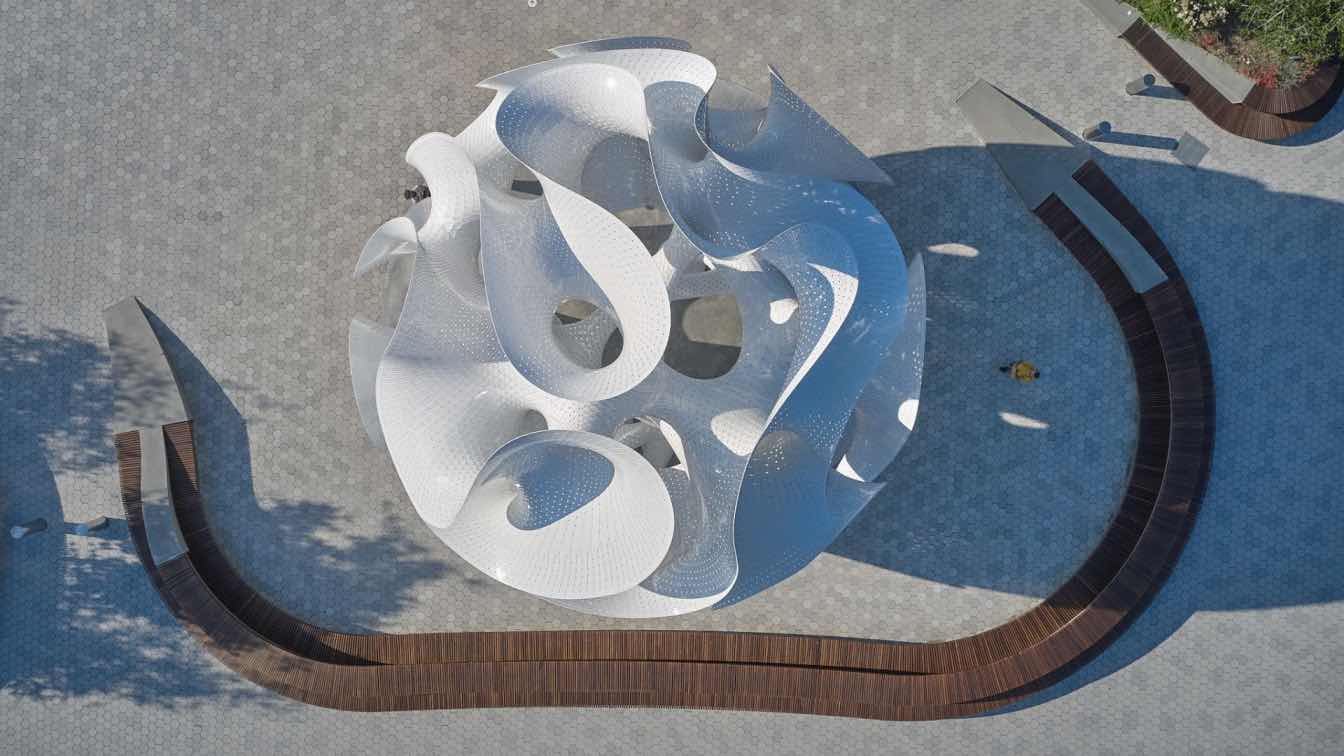For the Hakka people, the oil-paper umbrella carries profound cultural meaning. It is seen as a symbol of wholeness, reunion, and destiny, a reminder that life’s encounters are guided by both chance and connection. Even within the Chinese character for “umbrella” 【傘】, one finds the repeated presence of the character for “person” 【人】, suggesting the gathering, reliance, and interdependence between people. Inspired by this layered symbolism, artist Cheng Tsung FENG—renowned for translating traditional crafts into contemporary structural aesthetics—takes the umbrella as his central motif.
He expands it into three monumental, radiating canopies, unfolding horizontally like protective shields. Together, they form a large-scale architectural installation, a place where visitors are invited to step beneath, pause, and share a moment of rest.
FENG’’s creative process begins with a close study of the traditional Hakka oil-paper umbrella itself—its delicate components, mathematical proportions, and ingenious joinery. Through acts of deconstruction and recomposition, he reimagines the skeletal ribs of three umbrellas, interlacing them into a sheltering space that embraces and enfolds those who enter. Around a central pocket garden, circular benches made of wood provide a place to sit, fostering a balance between human presence and natural growth.

The canopy is crafted from perforated canvas: in the daytime, it breathes with light and air; at night, it glows softly like a lantern; and in the rain, its angled surfaces naturally guide water away, preserving the umbrella’s everyday function while amplifying it at architectural scale.
From the central axis, the three umbrella forms radiate outward, creating a kaleidoscopic geometry that shifts with each perspective. Standing within, one feels as though they have entered a fantastical spacecraft drifting quietly through the cosmos—a place at once wondrous, intimate, and serene. By reconstructing elements of Hakka tradition into a spatial form, FENG invites audiences not only to observe but also to inhabit the work, experiencing the atmosphere of gathering, protection, and imaginative escape that it embodies.
























